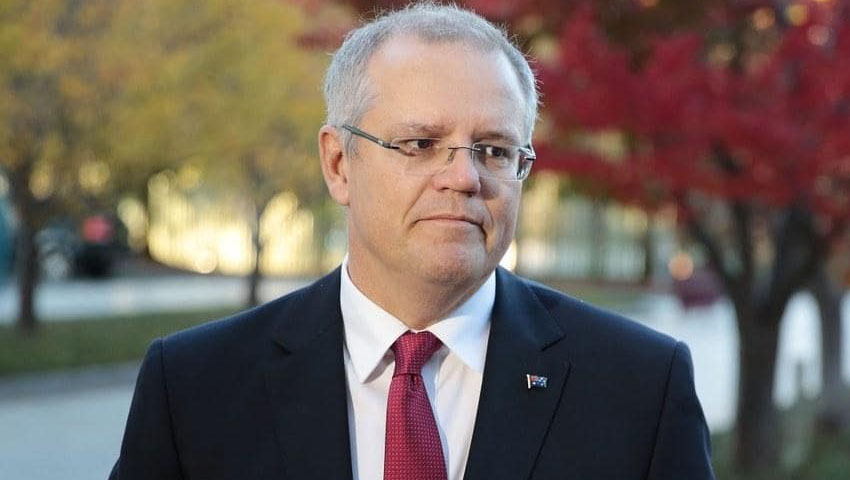The CCP has accused Australia of harbouring a “Cold War” mentality, which it claims has been the “root cause” of escalating tensions, but Prime Minister Scott Morrison has refused to compromise on “areas of national sovereignty”.
China’s Ministry of Foreign Affairs has ramped up its criticism of the Australian government, accusing it of “repeated wrong acts and remarks” relating to China’s “core interests”, underpinned by a “Cold War mentality and ideological prejudice”.
Foreign Ministry spokesman Zhao Lijian made reference to the Morrison government’s public expression of concerns regarding China’s human rights violations against Hong Kong, Xinjiang, and Taiwan; as well its suspicion of “intervention and infiltration” activities undermining Australia’s sovereignty.
“Australia was the first in banning Chinese company from participating in its 5G network construction, repeatedly prevented Chinese enterprises from investing in Australia under the guise of national security, and conducted arbitrary searches of Chinese media reporters in Australia,” the spokesperson said.
“These acts have seriously damaged mutual trust between the two countries, poisoned the atmosphere of bilateral relations, and curtailed the original good momentum of practical co-operation between China and Australia.”
The Foreign Ministry was also critical of Australia’s support for the independent international inquiry into the origins of COVID-19.
“The Australian side should reflect on this seriously, rather than shirking the blame and deflecting responsibility,” Zhao Lijian said.
When asked about China’s growing hostility, Prime Minister Scott Morrison said Australia was “not seeking to make an enemy” of China, emphasising the importance of the nations’ mutually beneficial trade relationship.
However, Prime Minister Morrison stressed that the government would not alter its stances on “matters that go to Australia's national sovereignty”.
“[It’s] not clear to me those who would seek some improvement in the relationship with Australia, how that would be achieved and what that would mean if it would mean compromising on these clear areas of national sovereignty,” he said.
According to Prime Minister Morrison, Australia has also been the victim of a broader “strategic competition” between China and the US.
“We don't set our national laws to please the United States or China or any other country,” he said.
“We do it in our own national interests, [and] the suggestion that Australia might be taking particular positions, whether it be trying to honestly understand how a pandemic started and how that has led to what has happened all around the world and seeking the co-operation of countries all around the world.
“The positions we would take on human rights issues in concert with other countries, how we would seek to build our communications networks or, indeed, what we would do to ensure that investment in Australia is done on our terms in accordance with our interests, on foreign investment and indeed a free press and a free and liberal and open democracy where elected members of Parliament can speak their mind.”
Prime Minister Morrison added, “I mean, these are things that are fundamental to who we are as a country and if that is the cause of tension with China, then clearly Australia being Australia cannot be considered a point of tension.”
The PM added that he would be open to dialogue with China to settle tensions if Chinese demands don’t come at the price of Australian sovereignty.
[Related: Australia, Japan step up regional security, economic partnership]



